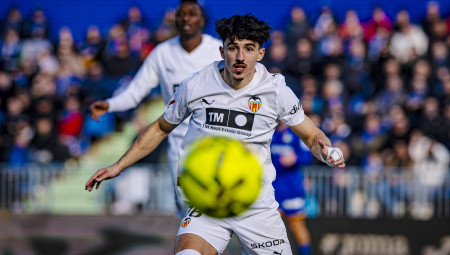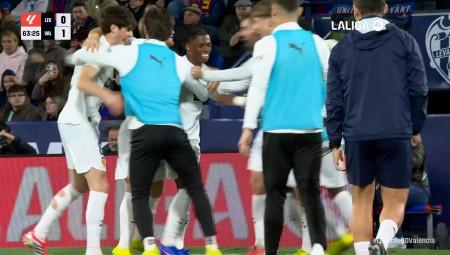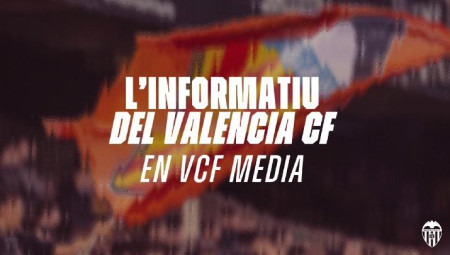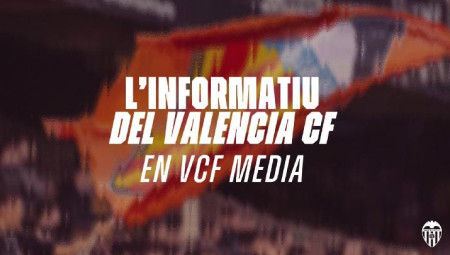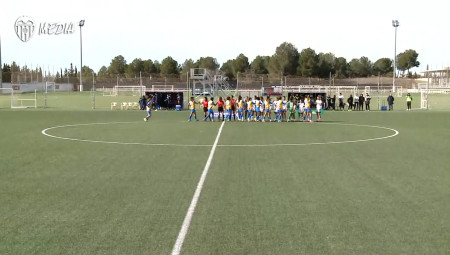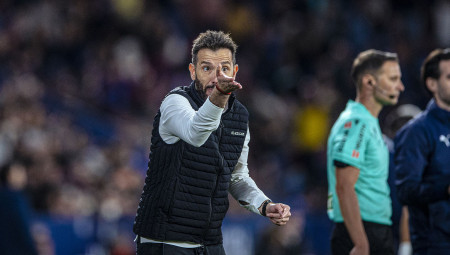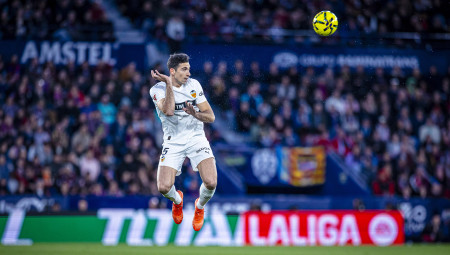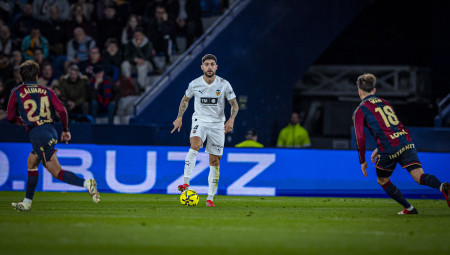VCF Academy directors give overview of 2020/21
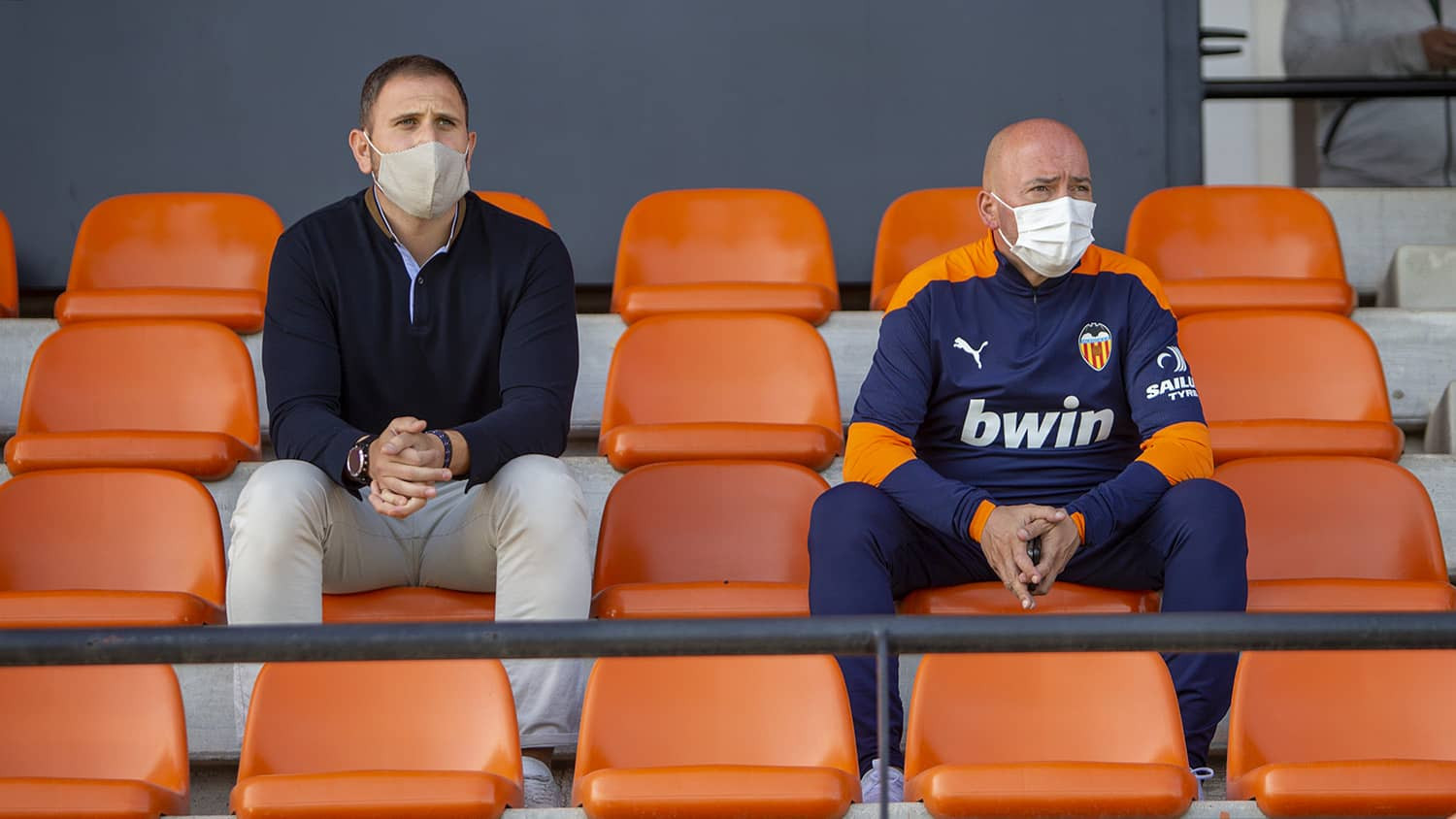
The VCF Academy is facing a new season full of challenges: The most evident being the situation that has forced it to delay the start of competitions and adopt a health protocol that provides an effective response to prevent COVID- 19 transmission.
In addition, this season’s commitment to youth and the talent of the VCF Mestalla side, as well as the demand to continue contributing players to the first team, provide interesting circumstances and opportunities. Luis Martínez and Marco Otero, two of the directors of the VCF Academy -together with Sean Bai- spoke about this in an interview with VCF Media.
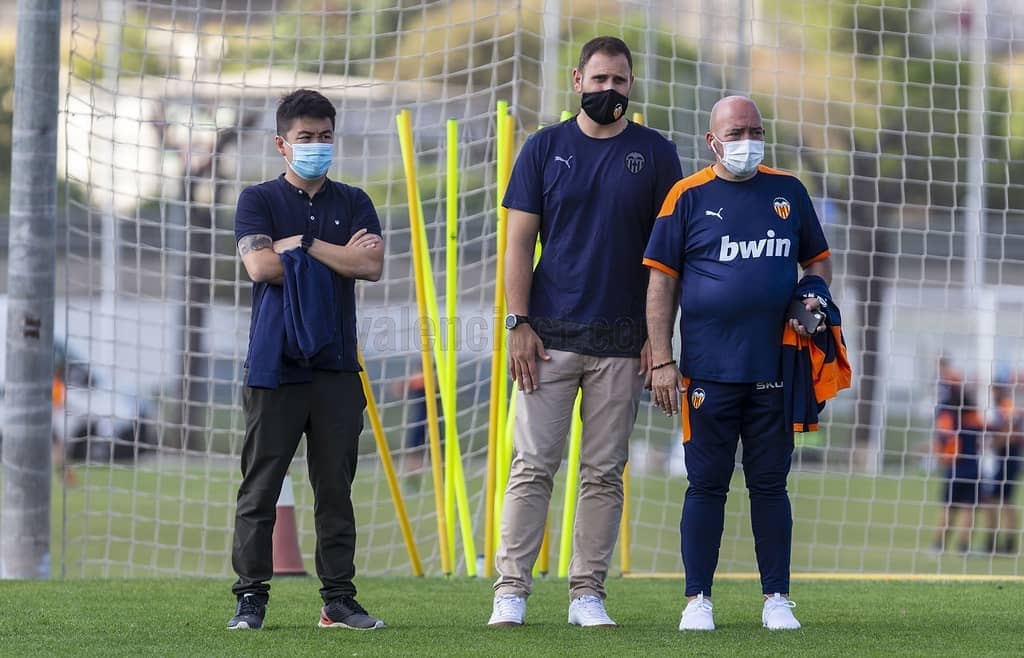
The breakthrough of Yunus Musah
Luis Martínez: Yunus is an exceptional kid -first of all as a person. He is a spectacular player with a very positive attitude. He has fun playing, and that -combined with his excellent technical abilities- is helping him to keep up with the competitive pace that the Primera División demands.
We are seeing Yunus do things that we saw from him with VCF Mestalla last season: His sprint, his physical power etc., and it was only a matter of time before we saw him with the first team.
Marco Otero: It was a joy and a source of satisfaction to see him score, because he’s worked very well. He joined last summer and had to adapt to Segunda B from youth competitions. He’s competed very well in two positions.
Yunus is another example of how, on the one hand, we have kids who have spent a long time at the VCF Academy, and on the other we are able to incorporate players from outside who adapt well.
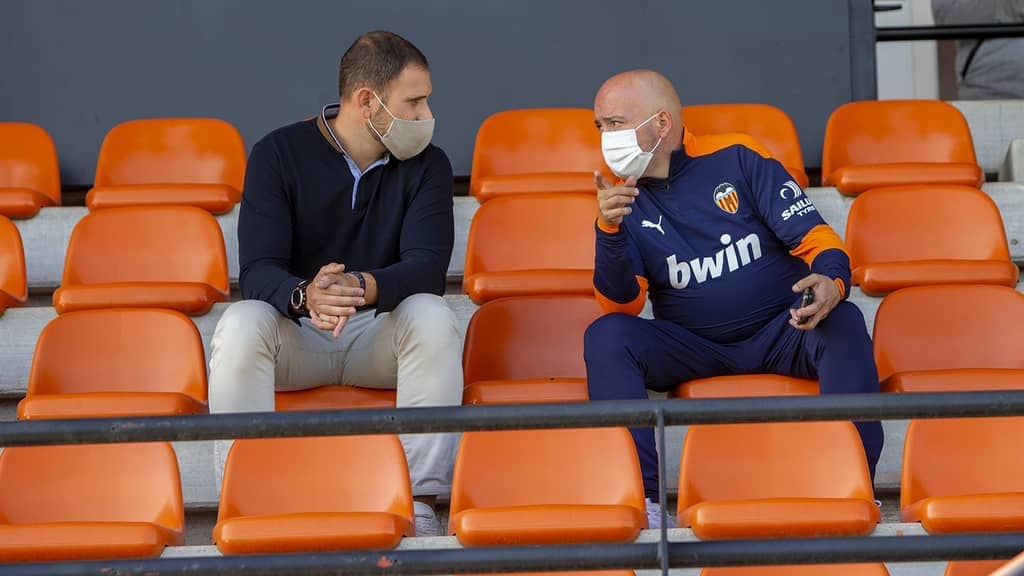
The influx of VCF Academy products in the first team
LM: The first team right now reflects work done very well over many years: Last Sunday we had Hugo, Gayà, Soler, Lato and Yunus playing. In addition, some of them adopted leadership roles, such as Carlos having the responsibility of taking the penalty. We had players that we have seen grow as footballers, and others who have just arrived like Yunus. We had Hugo playing at centre back, who is also having very good games and playing on a regular basis.
MO: It’s about hard work over many years, and giving opportunities. In the end, getting to the first team means having the opportunity to test yourself at that level and, with the help of the coaching staff, grow according to the new demands.
The personal profile of VCF Academy products in the first team
MO: Beyond the economic side involved in bringing through homegrown players to get a return from them or save on investing in another player from outside the club, the most important thing should be that you have players who match the profile that you want for the first team 100%: On a personal level and in terms of understanding the model used when competing and playing for Valencia CF. On Sunday, what I loved was that there was no celebration of a draw. The ambition at Valencia CF is greater than that.
LM: We are looking for players who have talent, who are competitive and who are good people. They have to be academically responsible and understand that their education is an important part of their development. That has been taken on board by most -or all- of the VCF Academy players who are going up to the first team.
VCF Mestalla’s mix of homegrown and imported players
LM: When a generation of youngsters with a lot of quality comes through, you have to give them that possibility at VCF Mestalla. They are young, but have a lot of quality and are very competitive. We believed it necessary to bring in certain other players to add a touch of maturity, but it’s relative: Kevin Sibille or Facu García, for example, have debuted in the Argentine First Division and have experience in European competition, but are still under 23 years old.
These types of additions help us to balance the team. We’ve looked for players who give a boost from a technical or tactical point of view, but also who help us from a human point of view. They assume that role with more experience and transmit to younger players that, if you want to be a professional, you have to be a professional in all facets of your life.
MO: We have managed to bring Óscar Fernández back home as coach. He is very clear about the focus for his work with his staff and with all of us.
For me, age is not a guarantee of success, nor a concern. You have to value the current performance of a player in the youth team much more. You want to give him the opportunity and see if he adapts. It should be normal, and in the future should lead us to a path of “The more players who come through the youth system, the better.”
The new Segunda B format for VCF Mestalla
MO: It can affect whether consistency or long-term performance are rewarded. It is about being prepared in the moment, like a cup competition. It’s good for the mentality of the players, as I think that the demand is at the maximum.
Second B has a set of complicated situations that help a lot with training. There are leagues abroad where the pitches are always the same size, there is natural grass etc. Having to deal with artificial pitches, small pitches, the fans close by… it helps and makes it more difficult for the players.
A summer of renewals at the VCF Academy
LM: This starts from 8-a-side level. The success of this is that the vast majority of players are continuing from last year. That is the first step to developing. It makes it more and more difficult for our recruitment department to find players who improve on what we have already. There is a lot of talent here, and we had to try to keep these players.
We had a clear intention to have these players and, on the other hand, we are sensing that the players want to be here -and that is important. We are not talking about a financial issue, but rather a sports project issue, which involves offering optimal development within the VCF Academy for a player who ideally will end up becoming a Valencia CF player -or at least a professional at another club.
We have high quality players that I am sure are tempted by many clubs in Spain and abroad, but I think that right now they see Valencia CF as the place to be, because there is an optimal development plan and opportunities are being given to homegrown players.
The educational project is also helping us to convince them when we talk to parents. It is an optimal plan to combine studies with football without skipping classes and with results that we are already beginning to show.
Handling COVID-19 at the VCF Academy
LM: We are following the protocols that we developed, before those of the RFEF were set out, strictly. We are one of the clubs that developed well-defined protocols the earliest, in close contact with our medical department.
These are measures that we know are sometimes uncomfortable for parents and onlookers. We would be more delighted than anybody to be able to open the Ciudad Deportiva to parents and fans, because it would be a sign that the health situation was much better. But the reality is that, seeing how the figures are currently, our responsibility is to maintain the current situation and the measures that we carry out, to detect how the players are on a daily basis and be very fast in managing the process.
Last week we detected a case in the Juvenil A team, and everything stopped quickly. The rest of the squad were tested and we followed the protocol of sending everybody home for 10 days.
In two weeks the 8-a-side leagues begin and the matches will build up. There is more of a chance that weekly matches will have to be suspended -and this causes us concern, not only because of the matches themselves, of course.
MO: Competing at those ages is, above all, about playing. When at home they lack teamwork, playing, taking responsibilities and learning how to handle results, but general a very good job has been done. The families have been very open to collaborating and following the guidelines of our coaches and the medical department for training at home.
The importance of competition
MO: Competition is very important in the training process. I don't like to talk about preseason but about a formative year.
We have all learned to listen to our bodies and to give ourselves time. In terms of results, we always seek to win, but the result is not enough to say whether we have done well or badly.
Latest news Ver todas
Latest news Ver todas
L'INFORMATIU DEL VALENCIA CF - 17/02/26
17 February 2026L'INFORMATIU DEL VALENCIA CF - 16/02/26
16 February 2026HIGHLIGHTS CD ALBA FUNDA-VALENCIA CF FEMENINO (2-1)
16 February 2026Corberán: “It was important to get the win and show people that we felt the match was special”
The coach’s post-match press conference
Tárrega: "We had a very complete game and showed ambition"
The defender reflects on an important win
